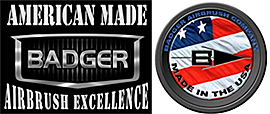
Originally conceived as an interceptor, later models were developed to fulfill multiple tasks, serving as bomber escort, fighter-bomber, day-, night-, all-weather fighter, ground-attack aircraft, and as reconnaissance aircraft. It was supplied to and operated by several states during World War II, and served with several countries for many years after the war. The Bf 109 was the most produced fighter aircraft in history, with a total of 33,984 units produced from 1936 up to April 1945
The Bf 109 was flown by the three top-scoring German fighter aces of World War II, who claimed 928 victories among them while flying with Jagdgeschwader 52, mainly on the Eastern Front, as well as by Hans-Joachim Marseille, the highest scoring German ace in the North African Campaign.
It was also flown by several other successful aces from Germany’s allies, notably Finland, including the highest scoring non-German ace Ilmari Juutilainen, and pilots from Romania, Croatia, and Hungary. Through constant development, the Bf 109 remained competitive with the latest Allied fighter aircraft until the end of the war.
The Kit
If you’ve been checking our currently on our workbench section on the right side of the screen, chances are that you saw the Hasegawa 1:48 BF-109E 4/7 Trop. Well, here it is after some 20 hours of work. This kit which dates back to the late ’80s can still play amongst recent versions.
I did use a Verlinden Resin and Photo Etch set. I must admit that the stock side panels and other details are not that bad out of the box. It features receded panel lines, positionable surface controls, and nice overall fittings. There might be a few other sides where this kit lacks, but again, I don’t complain about a 20+ years old kit. I’ve dealt with modern kits that are worse than this one. My major complaint with this kit is the canopy frame.
The frames are extremely thin making the masking process a challenge 😯 Good thing the Verlinden kit included PE frames. The other downside is the decal sheet. As common with Hasegawa, white decals aren’t white but ivory. The white band on the kit was airbrushed because this difference in color was too obvious
Most of the time went into the resin engine which at the last minute there was a change of plans. It will be displayed inside a scratch made a wooden crate. This kit was washed with artist oils Raw Umber, sealed with Model Master Acryl Flat Clear Coat and some further weathering was done with Tamiya weathering powders. The whole kit was painted with an Aztek A470 Double Action airbrush including the mottled pattern using the Tan Nozzle.
This is a great model kit for $30 or less and it would be perfect if one could build it OOB. ❗ You don’t need to add the Verlinden resin kit to make it look good, but at least for most modelers myself included, the decal set is a letdown and an extra $10 to the project should be added. If you ask me, I highly recommend this kit.





















